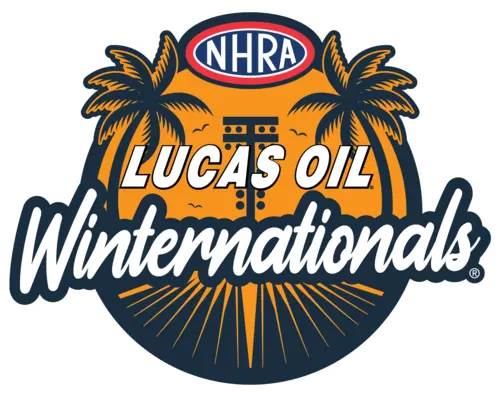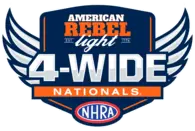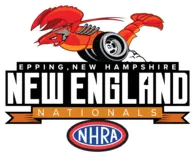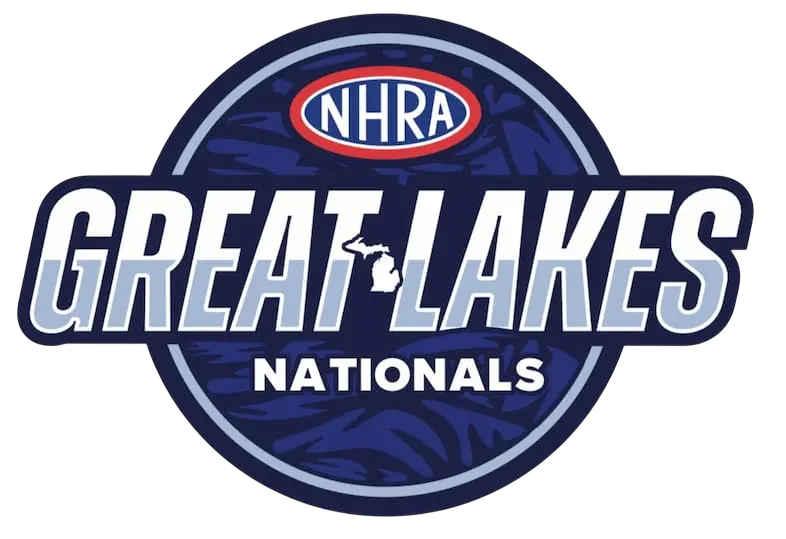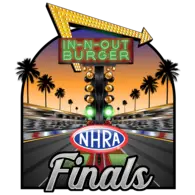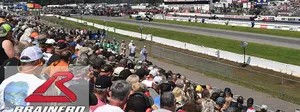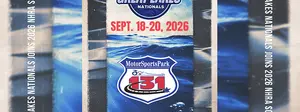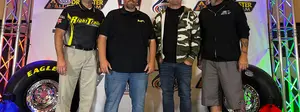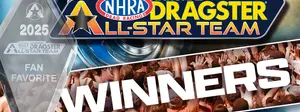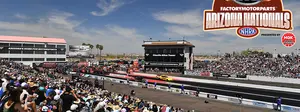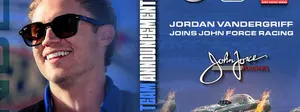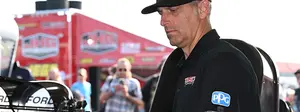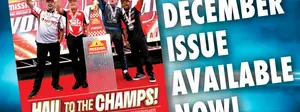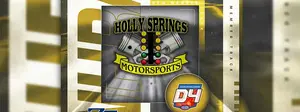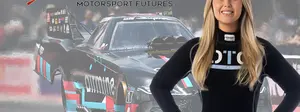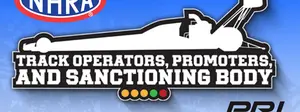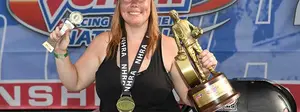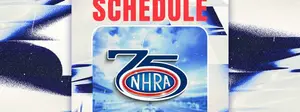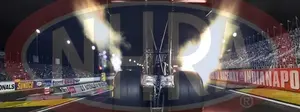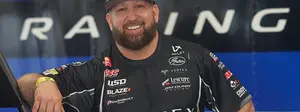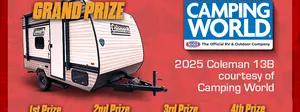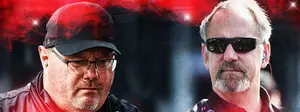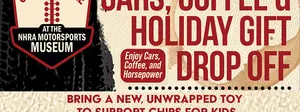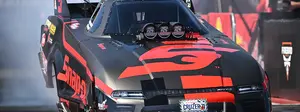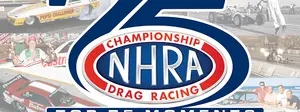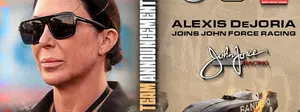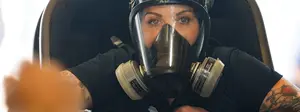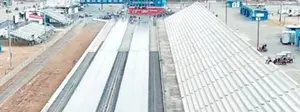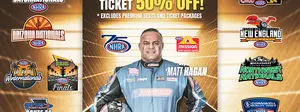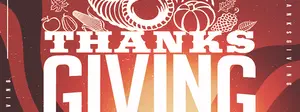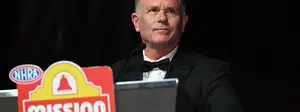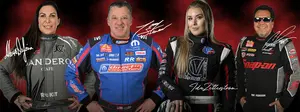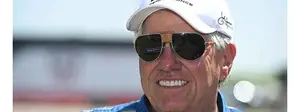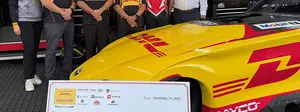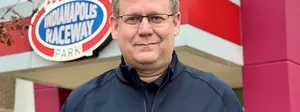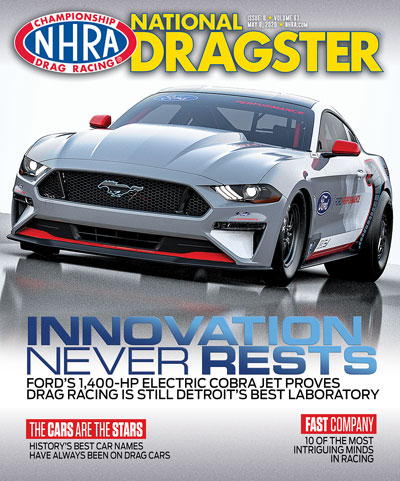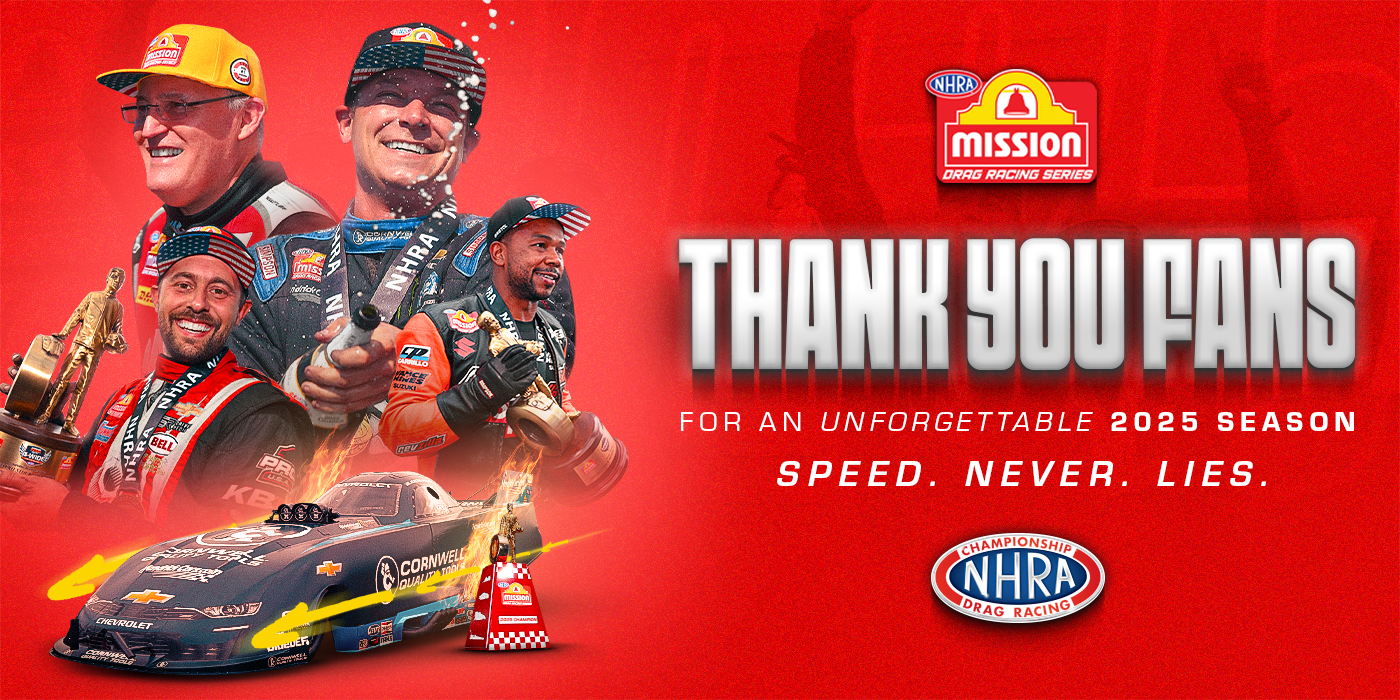

NHRA President Glen Cromwell and the path to bringing back NHRA Drag Racing
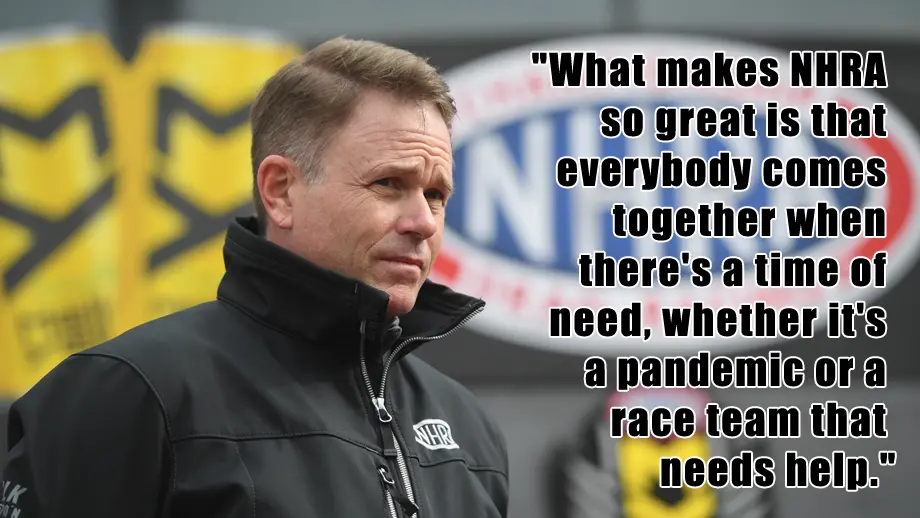
There’s no doubt that 2020 has fast become one of the most challenging years in the history of the world following the coronavirus outbreak and COVID-19 pandemic, and just as everywhere around the globe, the impact is being felt on a personal and professional level in the NHRA community. From the initial postponement of the Amalie Motor Oil NHRA Gatornationals in mid-March and subsequent adjustments to NHRA racing schedules and activities on all levels, the impact has been very real. NHRA President Glen Cromwell, along with his leadership team, has been charting a course through these unprecedented times, and he shares here with the NHRA community the thoughts behind the decisions that have been made and offers a look at the roadmap for the times ahead.
NHRA recently announced a second revision to the Mello Yello Series schedule, from a planned restart in June to now August. What went into that decision?
As we got into May, it became pretty evident that we were not going to be able to run in June or July with fans and that with the current state of the pandemic that our best chance of racing with fans was going to be starting in August, and try to run as many events as we could from August through November to still maintain the integrity of the championship.
It was also important to us to not put the fans through a constantly changing start date – we could have said late June or mid-July, but the pandemic situation is so fluid from week to week that could have changed – and we thought that starting in August was a strong plan that we could bring this great sport back to the fans.
Obviously, you believe that having fans in the stands is key to the restart.
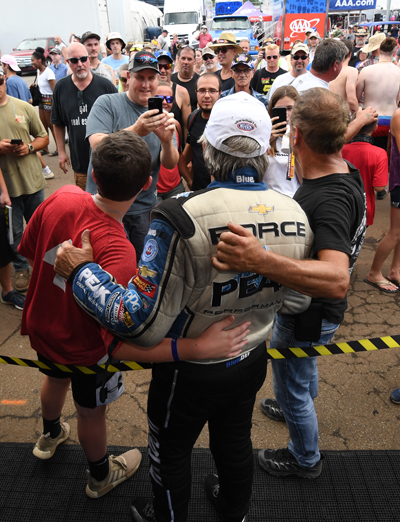
We have looked at other motorsports that are starting to run races without fans, and we’ve looked at that model and it just doesn't make sense for us. We believe we have the greatest racing product on the track and the fastest and most exciting cars in the world, and we also have very interactive events. Our fans are the true fabric of what NHRA Drag Racing is. Every fan gets to come in and see the drivers and the crew guys work on the cars, and they get to see the interactive displays, and racer hospitality is a great place for our partners and our race team partners to do a lot of face-to-face business.
To do an event without fans just does not make sense at this time. We think all athletes play sports for the acceptance and excitement from the fans, and the excitement that it brings for our racers to make runs in front of full grandstands versus racing cars with empty grandstands with nobody cheering for you is a big thing.
We’ve all seen racers win on a Monday or Tuesday after a rain delay – they get the Wally and the points, but something is missing without the fans. It just doesn't feel right. The electricity is just not the same.
What is the NHRA doing to make people feel safer at these races when we come back?
We're working on a racing re-engagement plan that includes opening doors for our race teams and fans with state, local, and CDC guidelines that could consist of facemasks, hand sanitizers, general social distancing, and increased cleaning and sanitizing of bathrooms and commonly touched surfaces.
Is it your expectation that by August we’ll be able to have full grandstands?
We hope we can be at 100% capacity but, as we all know, the situation is very fluid and uncertain. Whether we are at 100% or 50%, we will adapt to whatever the state and local officials deem safe, but we hope to get the events in and bring the great sport of NHRA Mello Yello Drag Racing to as many people as we can.
Can you talk about the types of conversations and the people you’ve been in contact with since March?
Our leadership team has been working 24-7. We’ve done a tremendous amount of outreach to our stakeholders on schedules. There’s a tremendous amount of communication and coordination that goes into that. Both Ned Walliser and Josh Peterson from the competition side and our marketing team took a lead on that and have done a great job. We continue to have communication with our race teams, sponsors, racetracks, fans, and our employees to keep them up to date on our plans moving forward.
Josh, Ned, and Kasey Coler, who is our Vice President -Track Management & Operations, have been working with the state and local governments and working with ACCUS [the Automobile Competition Committee for the United States] and other motorsports properties to work with Washington around the CARES Act to find money for employees. We meet with ACCUS once a week and we’ve been sharing best practices among all sanctioning bodies, which includes NASCAR, IndyCar, IMSA, USAC, and SCCA.
We’ve also been working with our member tracks and the racing re-engagement program to get racing back on track and helping our member tracks reopen and setting guidelines for them to follow their state and local and CDC guidelines.
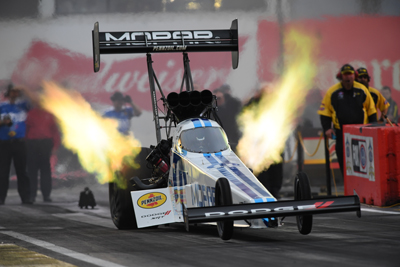
You’ve had to make a lot of tough decisions in sidelining some races for this year or moving events that are used to having a certain date. I imagine those decisions are pretty hard.
Every decision we've been making has been tough and a lot of them have been very heartbreaking but we had to find some efficiencies in the schedule, both economically and logistically. Some of the tracks that, unfortunately, we're not going to this year, didn't fit into this year’s schedule, but all of them have been great and have cooperated and are extremely excited for 2021 to get back to racing.
Another part of this strategic plan is going to be limiting the Mello Yello part of the program to Saturday and Sunday at some races. How will those work?
Obviously, running 16 races in a row will be a challenge for our Mello Yello race teams, so the plan gives them two qualifying runs on Saturday and then eliminations on Sunday and our Lucas Oil Drag Racing Series will run Friday through Sunday.
Before we can even begin to talk about having a Mello Yello Series, there's a lot of work to be done on the ground level, with member tracks and our other series, as our proving grounds.
It’s always been true but more true and evident than ever today because we have to open the tracks and we have to make sure we take care of our great customers, our E.T. racers and our Sportsman racers, who are incredibly important to us, and to get them out doing what they love to do. We are starting to see some increases in chassis and license requests, so they’re ready.
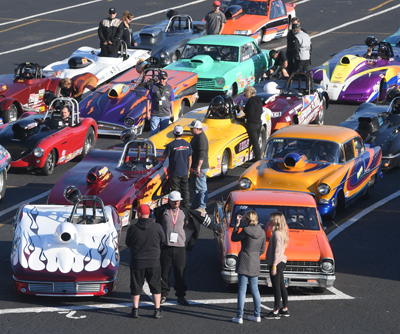
Although we spend a lot of time talking about the Mello Yello Series, for us to really open the doors and get back to racing, it starts at our member tracks, and we need to help guide them to get open.
We've been in regular communication with our member tracks and will continue to do so, and the message is to use a phased-in method. We’re working to help them open up as soon as they get approval, then start slow, with a small number of participants, and make sure that everyone is being safe and responsible.
We have a document that we have shared with all of our member tracks to give some guidance and advice on everything from taking entry fees online to digital tech cards to automated time slips to minimize the amount of contact between racer and track staff, as well as recommended distance for the parking of race teams, limiting the number of people on the starting line, sanitization practices, you name it. Everyone is sharing best practices.
Which tracks have led the way in showing us all paths to re-opening?
Scott New at Firebird Raceway in Idaho has been unbelievable. He worked with state, local, and the CDC to get approvals and put in place a great social distancing plan. Seth Angel at Houston Raceway Park also has done a really good job and Chris Blair [World Wide Technology Raceway] has been making a big PR push to re-open as an essential business to curb the street racing that’s happening in the St. Louis area, which is a great message for us.
Do you have cautions for tracks about trying to reopen too quickly?
We would reiterate to them that although the desire to get open quickly is there, you don’t want to make mistakes and have someone get hurt or even infected at their track.
What about the Lucas Oil Drag Racing Series?
Our division directors are doing a great job and our hope is to try to open up sometime in early June with the Lucas Oil Drag Racing Series divisional events.
While this pandemic has shaken our lives and our sport, are there positives that you hope can be learned from this time?
We’re all trying to find new ways to present the sport in this new world we live in. This is changing the way we all do business but some good can come out of it from finding new ways to operate.
There was some criticism leveled recently that NHRA hasn’t been communicating as often as some might like.
If you compare us against other sports, we believe we've been communicating as much or more than they have with our fans. We think that our content teams have been doing an amazing job of keeping NHRA relevant and front of mind with our community. You see it in National Dragster and on NHRA.com and our social media channels. People like Brian Lohnes and John Kernan and Steve Reintjes and Rob Hedrick and Steve Tanaka are pumping out tons of video content and the National Dragster team –- Phil Burgess, David Kennedy, Jerry Foss, Rey Oruga, and Jeff Mellem -– have been creating great magazines and posting stories to NHRA.com. Nykki Schele, our social media manager, has been doing a terrific job on all our social channels, keeping fans interested and engaged, and Jeffrey Young has done an excellent job with media communications. I’m very proud of the work they’ve been doing. The amount of content the NHRA is pushing out is unprecedented. Big-time sports like the NBA or the NHL aren't even doing that; not even close. For someone to say we're not communicating is ridiculous.
When will NHRA be making more announcements about the schedule?
Because of the fluid nature of the situation, our plan is to announce dates in a phased-in approach rather than all at once. We will announce these dates as we have concrete answers from state and local officials about when we’re going to run. We’ll just have to watch what happens.
What's been the most challenging thing for you personally?
It's a time that none of us will ever forget. This is a challenging time for the sport in general, but what makes NHRA so great is that everybody comes together when there's a time of need, whether it's a pandemic or a race team that needs help. Everyone helps one another. People pull together, they work together, they cooperate and, without that type of mindset, my position would be much harder, so we can't thank everybody enough for everything they're doing to get any drag racing back to some level of normal.
Do you ever think, what would [NHRA founder] Wally Parks have done?
We think Wally would have done it the same way, which is to constantly communicate to all our stakeholders and to be open and compassionate because we truly care about the sport. We think he would be extremely proud of the NHRA today, of our sponsors who have stuck with us, our fans who are standing behind us, and our race teams and racetracks who have been incredible and worked with us. The fans who have reached out to me have been overwhelmingly supportive and they know we're trying to do everything we can to get events to them as fast as we can.





